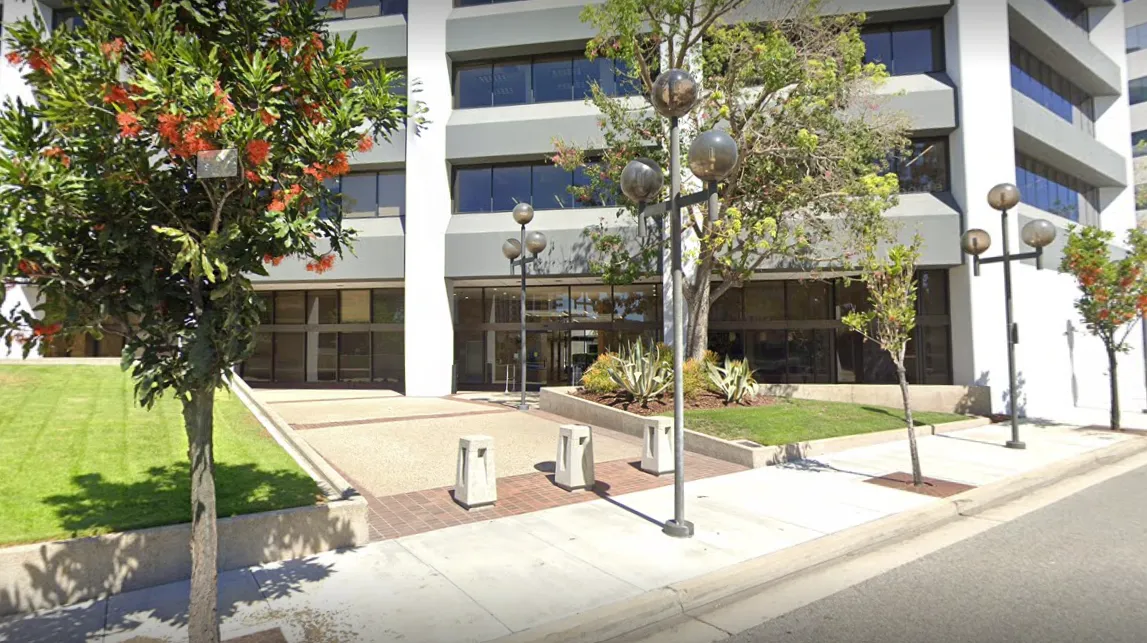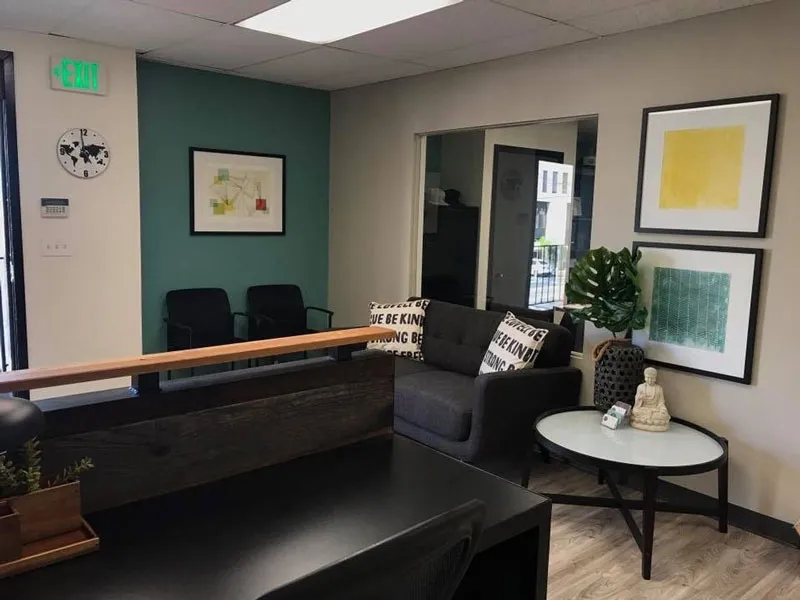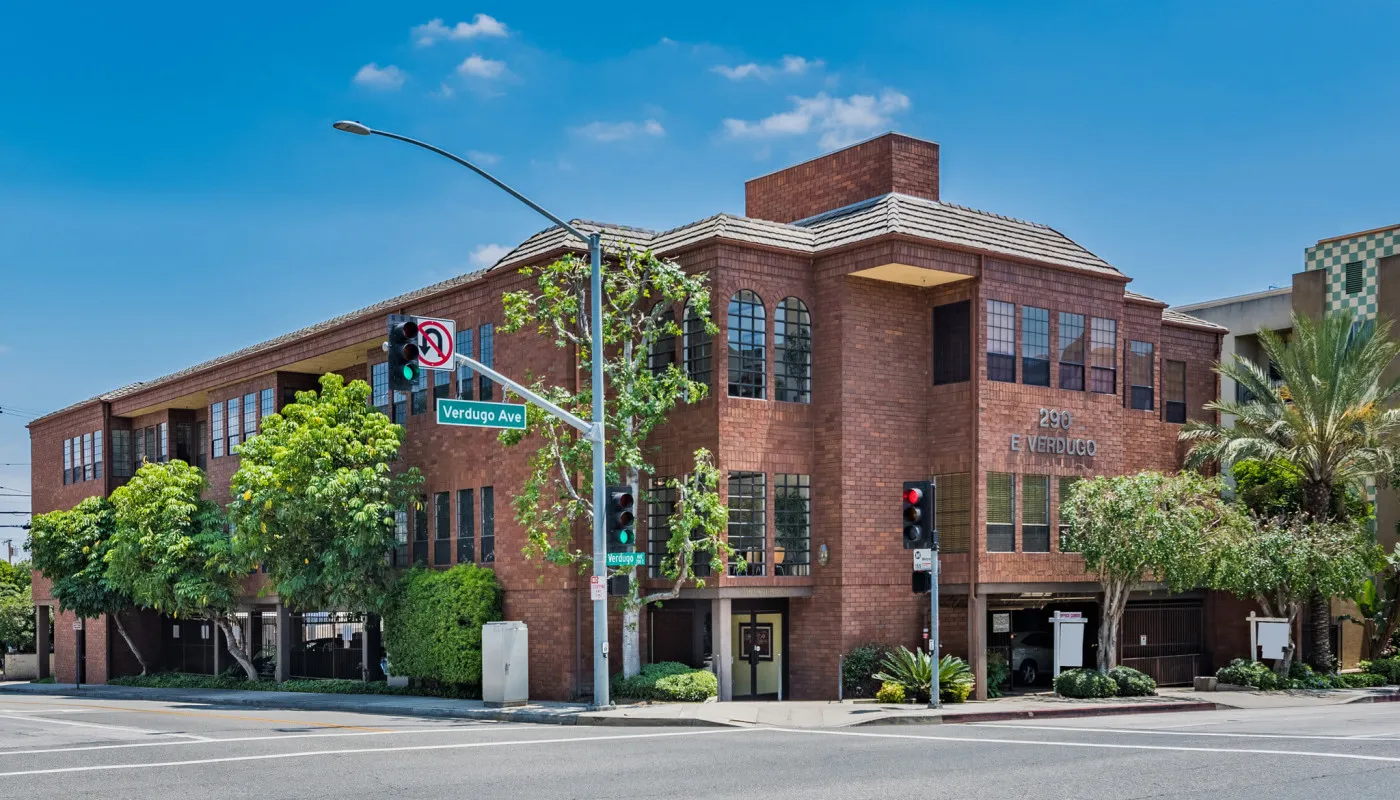Explore leading ADHD rehab centers and treatment facilities in Los Angeles and nearby areas. ADHD treatment centers provide specialized programs to help manage symptoms such as inattention, hyperactivity, and impulsivity. Through structured therapy, behavioral coaching, and medication support, these facilities focus on improving focus, organization, and self-control. Find the best ADHD rehab centers dedicated to empowering individuals to succeed at work, in relationships, and in everyday life.
Ads
More Info
Advertisement Disclosure
Our website is funded by advertisers who pay for prominently labeled placements.
Read More61 Rehab Centers were found
Filters
Locations
- Los Angeles(+98)
- Culver City(+14)
- Westlake Village(+13)
- Woodland Hills(+11)
- Beverly Hills(+10)
- Santa Monica(+9)
- Sherman Oaks(+7)
- West Hollywood(+6)
- Malibu(+5)
- Chatsworth(+5)
- Pasadena(+5)
- Encino(+5)
- Redondo Beach(+4)
- Lancaster(+4)
- Reseda(+4)
- Studio City(+4)
- Northridge(+3)
- San Mateo(+3)
- Lynwood(+3)
- Vernon(+3)
- Van Nuys(+3)
- Tarzana(+3)
- North Hollywood(+3)
- Glendale(+3)
- Gardena(+3)
- Riverside(+3)
- Granada Hills(+2)
- Shadow Hills(+2)
- Venice(+2)
- Orange County(+2)
- Pomona(+2)
- West Hills(+2)
- Valley Village(+2)
- Burbank(+2)
- Brentwood(+2)
- Long Beach(+2)
- Sun Valley(+1)
- Torrance(+1)
- San Jacinto(+1)
- San Pedro(+1)
- Upland(+1)
- Whittier(+1)
- Toluca Lake(+1)
- Thousand Oaks(+1)
- Simi Valley(+1)
- Mission Viejo(+1)
- Acton(+1)
- Beaumont(+1)
- Wilmington(+1)
- Panorama City(+1)
- Anaheim(+1)
- Laguna Hills(+1)
- Inglewood(+1)
- Alhambra(+1)
- Rosemead(+1)
- Maywood(+1)
- Manhattan Beach(+1)
- Monterey Park(+1)
- Claremont(+1)
- Covina(+1)
- La Puente(+1)
- Pico Rivera(+1)
- San Fernando(+1)
- Azusa(+1)
- Santa Fe Springs(+1)
- Glendora(+1)
- Agoura Hills(+1)
- El Segundo(+1)
- Duarte(+0)
- Sunland(+0)
- Downey(+0)
- Cudahy(+0)
- El Monte(+0)
- Compton(+0)
- Hermosa Beach(+0)
- Cerritos(+0)
- Calabasas(+0)
- Bellflower(+0)
- Bell Gardens(+0)
- Avalon(+0)
- Arcadia(+0)
- Altadena(+0)
- Paramount(+0)
- South El Monte(+0)
- Walnut(+0)
- West Covina(+0)
- Santa Clarita(+0)
- San Gabriel(+0)
- San Dimas(+0)
- Rolling Hills(+0)
- Orange(+0)
- Hawaiian Gardens(+0)
- Palmdale(+0)
- Norwalk(+0)
- Montebello(+0)
- Lakewood(+0)
- South Pasadena(+0)
- Carson(+0)
- Hawthorne(+0)
Conditions
- Drug(+278)
- Alcohol(+219)
- Mental Health(+195)
- Opioid(+193)
- Cocaine(+184)
- Trauma(+180)
- Methamphetamine(+177)
- Benzodiazepines(+174)
- Heroin(+173)
- Prescription Drugs(+159)
- Depression(+152)
- Anxiety(+149)
- Xanax(+145)
- Synthetic Drugs(+138)
- PTSD(+133)
- Adderall(+131)
- Marijuana(+112)
- Bipolar(+109)
- Ecstasy(+104)
- MDMA(+99)
- Behavioral Health(+93)
- LSD(+93)
- Psychedelics(+91)
- Fentanyl(+71)
- Stress(+71)
- OCD(+69)
- Personality Disorders(+63)
- ADHD(+61)
- Gambling(+38)
- Eating Disorders(+35)
- Anorexia(+34)
- Binge Eating Disorder(+34)
- Bulimia(+33)
- Schizophrenia(+32)
- Gaming(+28)
- Internet Addiction(+27)
- Sex Addiction(+25)
- Burnout(+23)
- Pornography(+22)
- Shopping(+10)
- Narcissism(+8)
Insurances
- BlueCross BlueShield(+129)
- Aetna(+126)
- Anthem(+105)
- Cigna(+105)
- United Healthcare(+66)
- Humana(+63)
- Optum(+53)
- Medicaid(+53)
- MHN(+51)
- Magellan Health(+47)
- Kaiser Permanente(+39)
- Medicare(+31)
- GEHA(+31)
- ComPsych(+29)
- Highmark(+25)
- AmeriHealth(+13)
- Tufts Health(+11)
- Oscar(+9)
- CareFirst(+9)
- Molina Healthcare(+8)
- Intermountain Healthcare(+6)
- Beacon Health Options(+2)
- UMR(+2)
- NYSHIP(+2)
- ILWU(+2)
- Geisinger(+2)
- Empire Life(+2)
- Empire BCBS(+2)
- Bright Health(+2)
- GuideWell(+1)
Therapies

$45,000+ - 30-90 days

$1,50

N/A

$12,000 - 60-120 days

N/A

$35,000 - 30 days
Exploring ADHD Rehab and Treatment Services in Los Angeles
Attention-Deficit/Hyperactivity Disorder (ADHD) is a neurodevelopmental condition that affects focus, impulse control, and executive functioning. While often diagnosed in childhood, ADHD continues to impact many adults, making daily responsibilities, work, and relationships more challenging. Individuals with ADHD may struggle with disorganization, forgetfulness, time management, and difficulty maintaining attention on tasks.
Despite common misconceptions, ADHD is not simply an inability to focus. It affects motivation, decision-making, and emotional regulation, often leading to frustration, low self-esteem, and difficulties in both academic and professional settings. Many individuals with ADHD also experience co-occurring conditions such as anxiety, depression, or substance use disorders. You can learn more about other mental health and addiction conditions that often occur alongside ADHD in our conditions overview, including alcoholism, drug addiction, and trauma.
It’s important to note that ADHD can also co-occur with specific substance use issues, such as cocaine addiction, benzodiazepine addiction, or opioid addiction, which may require integrated treatment approaches.
In Los Angeles, specialized treatment programs provide therapy, medication management, and behavioral coaching to help individuals manage ADHD symptoms and improve their overall quality of life. Depending on your needs, there are various levels of care available, ranging from outpatient services to more intensive support.
Recognizing the Symptoms of ADHD
ADHD symptoms vary widely between individuals, but they generally fall into three categories: inattentive, hyperactive-impulsive, or a combination of both.
Those with inattentive ADHD often struggle with staying focused, organizing tasks, following through on responsibilities, and remembering important details. Many describe feeling easily distracted, unable to complete tasks, or frequently losing things.
Hyperactive-impulsive ADHD presents as excessive restlessness, difficulty sitting still, talking excessively, and making impulsive decisions without thinking through the consequences. Some individuals struggle with emotional impulsivity, experiencing strong emotional reactions to minor events.
Many adults with ADHD develop coping mechanisms to mask their struggles, making it harder to recognize the disorder. They may push themselves to overcompensate, leading to burnout, anxiety, or depression. Diagnosis often happens later in life when individuals realize their challenges are not simply due to poor motivation or laziness but rather an underlying condition that affects brain function.
How ADHD is Diagnosed
ADHD is diagnosed through a combination of clinical assessments, self-reports, and medical history evaluations. Many individuals who seek treatment in adulthood recognize that they have struggled with symptoms since childhood but were never formally diagnosed.
A thorough ADHD evaluation typically includes a discussion of behavioral patterns, attention difficulties, and how symptoms impact daily life. Some clinicians use neuropsychological testing to assess executive function, working memory, and impulse control. Since ADHD symptoms often overlap with anxiety and other conditions, a proper diagnosis is essential for effective treatment.
Treatment Options for ADHD
ADHD treatment is highly individualized, depending on the severity of symptoms and the specific challenges faced by each person. The most effective treatment plans combine medication, therapy, and lifestyle adjustments to improve focus, organization, and emotional regulation.
Medication is often a key component of ADHD treatment, helping to regulate dopamine levels in the brain. Stimulant medications like Adderall or Ritalin are commonly prescribed, while non-stimulant options are available for those who cannot tolerate stimulants. Medication can help improve focus and impulse control, but it is most effective when combined with behavioral therapy and lifestyle changes.
Cognitive-behavioral therapy is widely used to help individuals develop better coping strategies, improve time management, and reduce negative thought patterns related to ADHD struggles. Many people with ADHD experience frustration and self-criticism due to their difficulties with organization and productivity. Therapy helps them reframe these thoughts and develop more effective habits. For an overview of evidence-based therapies used in ADHD and addiction treatment, visit our therapies guide.
Coaching and skills training focus on practical ways to manage ADHD in everyday life. Many individuals benefit from structured routines, visual reminders, and productivity techniques tailored to their specific challenges. Behavioral interventions help with goal-setting, planning, and breaking tasks into manageable steps.
Some treatment centers in Los Angeles also offer group therapy and support groups, where individuals with ADHD can connect with others who face similar challenges. These programs provide encouragement, accountability, and shared strategies for managing symptoms.
Managing ADHD Without Medication
While medication is effective for many, some individuals prefer to manage their ADHD symptoms through non-medication approaches. Lifestyle modifications such as regular exercise, proper sleep, and a balanced diet can help improve focus and energy levels. Exercise, in particular, has been shown to increase dopamine levels naturally, providing similar benefits to stimulant medications.
Mindfulness and meditation practices help with emotional regulation and impulse control. Many people with ADHD struggle with racing thoughts and distractions, making mindfulness training an important tool for developing greater awareness and focus.
Dietary changes may also play a role in symptom management. Some individuals find that reducing sugar and processed foods, while increasing protein and omega-3 fatty acids, helps stabilize energy levels and concentration. While diet alone cannot treat ADHD, it can support overall brain function and improve mood stability.
Time management tools such as planners, to-do lists, and digital reminders help individuals stay organized and complete tasks more efficiently. Breaking tasks into smaller steps, using timers, and creating structured routines can make it easier to stay on track. Many treatment programs in Los Angeles include executive functioning training to help individuals develop these skills.
ADHD and Co-Occurring Conditions
ADHD often occurs alongside other mental health conditions such as anxiety, depression, and substance use disorders. Many individuals with ADHD struggle with chronic stress due to difficulties in meeting expectations at work, school, or in relationships. These challenges can lead to feelings of inadequacy and emotional exhaustion.
For those with co-occurring conditions, integrated treatment programs that address both ADHD and mental health concerns are essential. Some individuals with untreated ADHD develop coping mechanisms such as self-medicating with drugs or alcohol to manage their symptoms. Identifying and treating both ADHD and any underlying conditions leads to better long-term outcomes.
Life After ADHD Treatment
Effective ADHD treatment is not about eliminating symptoms entirely but learning how to work with them in a way that allows individuals to function more effectively. Many people with ADHD thrive when they find careers, routines, and environments that align with their strengths.
Continued therapy, coaching, and support groups provide ongoing guidance for managing symptoms. Many individuals develop lifelong habits that help them navigate responsibilities, relationships, and professional challenges. Learning to embrace ADHD as part of one’s identity while developing tools for success allows for greater self-acceptance and long-term stability.
ADHD is not a barrier to success. Many highly successful people, including entrepreneurs, artists, and scientists, have ADHD. With the right treatment and support, individuals can harness their creativity, energy, and unique problem-solving skills to lead fulfilling lives.
Finding ADHD Treatment in Los Angeles
Los Angeles offers a variety of ADHD treatment options, including specialized clinics, therapy programs, and coaching services. Some individuals benefit from one-on-one therapy, while others prefer structured programs that provide comprehensive support.
Choosing the right treatment depends on personal needs, lifestyle, and symptom severity. Consulting with an ADHD specialist can help determine the best approach, whether through medication, therapy, behavioral interventions, or a combination of these methods.
Frequently Asked Questions
What is the best treatment for ADHD?
Can ADHD be treated without medication?
How do I know if I have ADHD as an adult?
Is ADHD considered a disability?
Ads
More Info
Advertisement Disclosure
Our website is funded by advertisers who pay for prominently labeled placements.
Read More






































